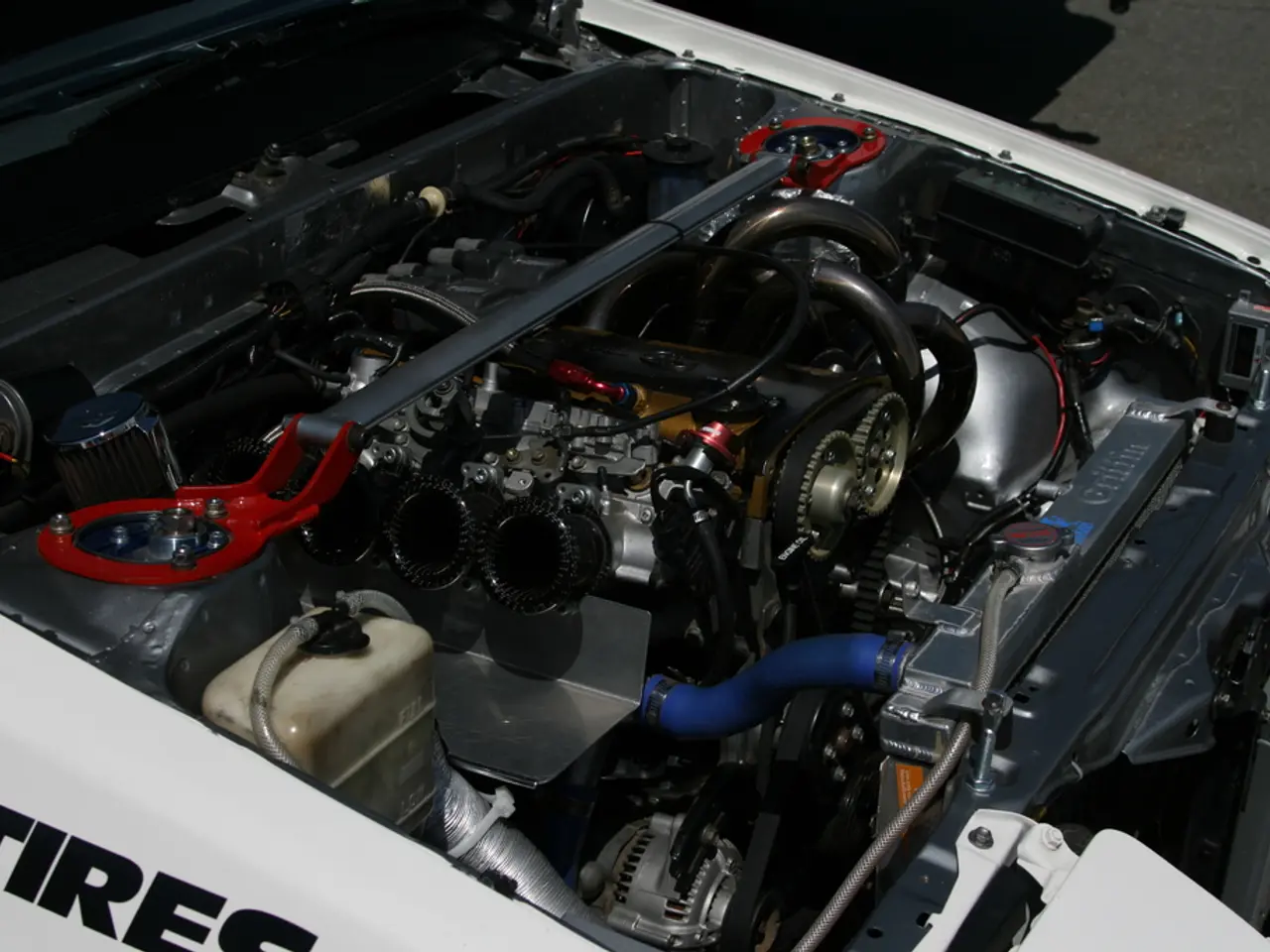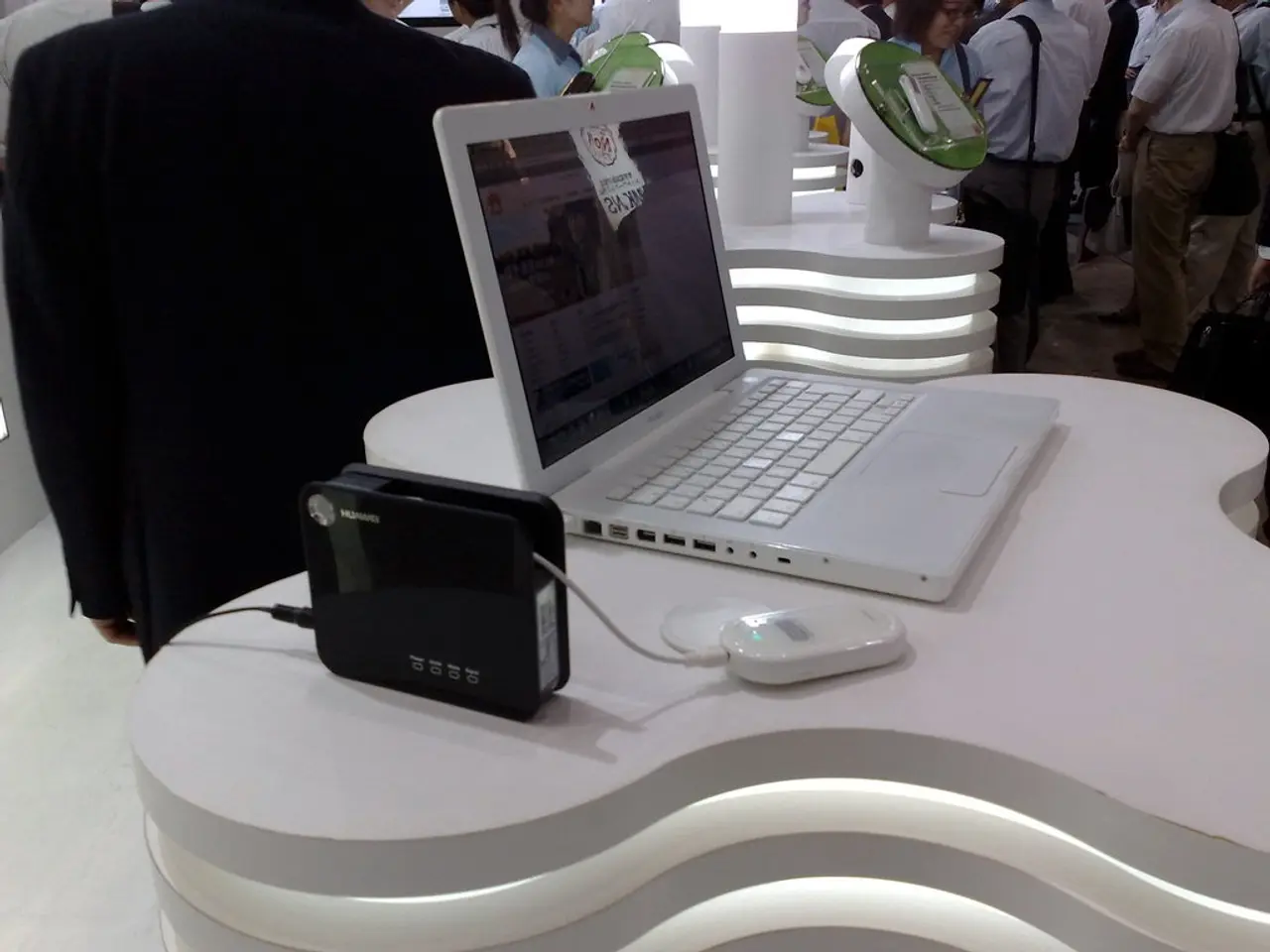Europe's battery manufacturing sector is experiencing growth and momentum
The European Commission has announced a significant investment of €852 million under the Innovation Fund to support six cutting-edge electric vehicle (EV) battery projects across the continent [1][5]. This funding is part of a broader €3 billion EU initiative aimed at strengthening Europe’s battery ecosystem and promoting clean industrial transition.
Europe's strategy is not to compete with China's mass production in EV batteries but to carve out competitive advantages in innovation, sustainability, and supply chain resilience within Europe. The focus is on supporting innovative, clean, and specialized battery technologies with EU funding, building regional battery production capacity with controlled risk, and fostering strategic autonomy through diversified supply chains and decarbonization [1][2][5].
The continent lags in EV battery production due to a lack of a clear industrial strategy and late investments, as well as dependence on Asian supply chains for important raw materials. China, on the other hand, leads in EV battery production due to early investments in development and production, state subsidies, strategic securing of raw materials, and targeted development of a domestic industry [3].
Despite the insolvency of the Swedish battery startup Northvolt, some European manufacturers, such as Stellantis and Mercedes, are involved in projects like ACC. However, their battery sourcing remains primarily from Asia [4]. European automakers, including BMW and Mercedes, mainly source their batteries from Asian suppliers like China, South Korea, and Japan [2].
The Volkswagen Group is pushing ahead with the establishment of its own battery factories on a larger scale, for example in Salzgitter and Valencia. However, the EU Commission has approved further funding of around 700 million euros for a battery factory, but these funds have not yet been paid out [1].
Europe's approach aims to not out-scale China in volume but to establish a strong presence in niche and advanced battery production, where it can compete on innovation and sustainability. This strategy may not entirely eliminate Europe's dependence on Asia for EV batteries, but it presents an opportunity to create a more resilient and competitive battery ecosystem within the continent [1][2][5].
References:
[1] European Commission. (2021). Press Release: European Commission invests €852 million in six cutting-edge electric battery projects across Europe. Retrieved from https://ec.europa.eu/commission/presscorner/detail/en/IP_21_2715
[2] European Commission. (2021). Staff Working Document: Assessment of the Commission's proposal for a Regulation of the European Parliament and of the Council establishing the Innovation Fund for the period 2021-2030. Retrieved from https://ec.europa.eu/info/publications/staff-working-document-assessment-commission-s-proposal-regulation-european-parliament-and-council_en
[3] Schularick, M. (2021). The Global Race for Electric Vehicle Battery Supremacy. Retrieved from https://www.kielinstitute.de/en/research/working-papers/2021/15/the-global-race-for-electric-vehicle-battery-supremacy
[4] European Commission. (2021). Staff Working Document: Preliminary assessment of the Commission's proposal for a Regulation of the European Parliament and of the Council establishing the Innovation Fund for the period 2021-2030. Retrieved from https://ec.europa.eu/info/sites/default/files/1_en_act_part1_v14_4.pdf
[5] European Commission. (2020). Communication from the Commission to the European Parliament, the European Council, the European Economic and Social Committee and the Committee of the Regions: A Hydrogen Strategy for a Climate-Neutral Europe. Retrieved from https://ec.europa.eu/info/publications/communication-commission-european-parliament-european-council-european-economic-and-social-committee_en
- The European Commission's strategy is to focus on supporting innovative, clean, and specialized battery technologies, aiming to establish a strong presence in niche and advanced battery production, where they can compete on innovation and sustainability, contrary to China's mass production.
- With the EU's €852 million investment under the Innovation Fund, six cutting-edge EV battery projects across Europe aim to carve out competitive advantages in innovation, sustainability, and supply chain resilience, as opposed to relying solely on Asian battery supply chains.




